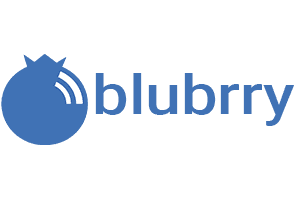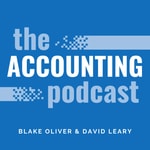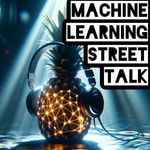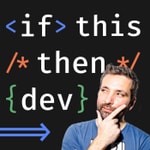Microsoft Research Podcast – Details, episodes & analysis
Podcast details
Technical and general information from the podcast's RSS feed.

Microsoft Research Podcast
Researchers across the Microsoft research community
Frequency: 1 episode/13d. Total Eps: 200

Recent rankings
Latest chart positions across Apple Podcasts and Spotify rankings.
Apple Podcasts
🇺🇸 USA - technology
26/07/2025#96🇺🇸 USA - technology
23/07/2025#86🇺🇸 USA - technology
22/07/2025#81🇺🇸 USA - technology
21/07/2025#77🇺🇸 USA - technology
20/07/2025#61🇺🇸 USA - technology
19/07/2025#52🇨🇦 Canada - technology
18/07/2025#91🇺🇸 USA - technology
18/07/2025#48🇨🇦 Canada - technology
27/04/2025#96🇨🇦 Canada - technology
09/03/2025#80
Spotify
No recent rankings available
Shared links between episodes and podcasts
Links found in episode descriptions and other podcasts that share them.
See allRSS feed quality and score
Technical evaluation of the podcast's RSS feed quality and structure.
See allScore global : 42%
Publication history
Monthly episode publishing history over the past years.
Abstracts: November 14, 2024
jeudi 14 novembre 2024 • Duration 13:30
The efficient simulation of molecules has the potential to change how the world understands biological systems and designs new drugs and biomaterials. Tong Wang discusses AI2BMD, an AI-based system designed to simulate large biomolecules with speed and accuracy.
Collaborators: Prompt engineering with Siddharth Suri and David Holtz
lundi 11 novembre 2024 • Duration 55:26
Researcher Siddharth Suri and professor David Holtz give a brief history of prompt engineering, discuss the debate behind their recent collaboration, and share what they found from studying how people’s approaches to prompting change as models advance.
Learn more:
- As Generative Models Improve, People Adapt Their Prompts | Publication, July 2024
- AI, Cognition, and the Economy (AICE) | Initiative page
What’s Your Story: Emre Kiciman
jeudi 1 août 2024 • Duration 40:05
Emre Kiciman shares how some keen observations and a desire to have front-end impact led him to make the jump from systems and networking to computational social science and now causal analysis and large-scale AI—and how systems thinking still impacts his work.
Learn more:
101 - Going meta: learning algorithms and the self-supervised machine with Dr. Philip Bachman
mercredi 4 décembre 2019 • Duration
Deep learning methodologies like supervised learning have been very successful in training machines to make predictions about the world. But because they’re so dependent upon large amounts of human-annotated data, they’ve been difficult to scale. Dr. Phil Bachman, a researcher at MSR Montreal, would like to change that, and he’s working to train machines to collect, sort and label their own data, so people don’t have to.
Today, Dr. Bachman gives us an overview of the machine learning landscape and tells us why it’s been so difficult to sort through noise and get to useful information. He also talks about his ongoing work on Deep InfoMax, a novel approach to self-supervised learning, and reveals what a conversation about ML classification problems has to do with Harrison Ford’s face.
https://www.microsoft.com/research
100 - Autonomous systems, aerial robotics and Game of Drones with Gurdeep Pall and Dr. Ashish Kapoor
mercredi 27 novembre 2019 • Duration
There’s a lot of excitement around self-driving cars, delivery drones, and other intelligent, autonomous systems, but before they can be deployed at scale, they need to be both reliable and safe. That’s why Gurdeep Pall, CVP of Business AI at Microsoft, and Dr. Ashish Kapoor, who leads research in Aerial Informatics and Robotics, are using a simulated environment called AirSim to reduce the time, cost and risk of the testing necessary to get autonomous agents ready for the open world.
Today, Gurdeep and Ashish discuss life at the intersection of machine learning, simulation and autonomous systems, and talk about the challenges we face as we transition from a world of automation to a world of autonomy. They also tell us about Game of Drones, an exciting new drone racing competition where the goal is to imbue flying robots with human-level perception and decision making skills… on the fly.
https://www.microsoft.com/research
099 - Program synthesis and the art of programming by intent with Dr. Sumit Gulwani
mercredi 20 novembre 2019 • Duration
Dr. Sumit Gulwani is a programmer’s programmer. Literally. A Partner Research Manager in the Program Synthesis, or PROSE, group at Microsoft Research, Dr. Gulwani is a leading researcher in program synthesis and the inventor of many intent-understanding, programming-by-example and programming-by-natural language technologies – aka, the automation of “what I meant to do and wanted to do, but my computer wouldn’t let me” tasks.
Today, Dr. Gulwani gives us an overview of the exciting “now” and promising future of program synthesis; reveals some fascinating new applications and technical advances; tells us the story behind the creation of Excel’s popular Flash Fill feature (and how a Flash Fill Fail elicited a viral tweet that paved the way for new domain investments); and shares a heartwarming story of how human empathy facilitated an “ah-ha math moment” in the life of a child, and what that might mean to computer scientists, educators and even tech companies in the future.
https://www.microsoft.com/research
098 - Hacking the runway with MakeCode with Dr. Thomas Ball and Dr. Teddy Seyed
mercredi 13 novembre 2019 • Duration
Computer programming has often been perceived as the exclusive domain of computer scientists and software engineers. But that’s changing, thanks to the work of people like Dr. Thomas Ball, a Partner Researcher in the RiSE group at Microsoft Research, and Dr. Teddy Seyed, a post-doctoral researcher in the same group. Their goal is to make programming accessible to non-programmers in places like the classroom, the workshop… and even the runway!
On today’s podcast, Tom and Teddy talk about physical computing through platforms like MakeCode, a simplified programming environment that makes it easier for young people – and other computer science neophytes – to start coding with programmable microcontrollers. They also tell us all about Project Brookdale, where they did a collaborative fashion show that gave emerging designers the tools to embed technology in their garments and produce wearables you’d actually want to be seen in!
https://www.microsoft.com/research
097- Optics for the cloud: storage in the zettabyte era with Dr. Ant Rowstron and Mark Russinovich
mercredi 6 novembre 2019 • Duration
Remember when a hard drive that could hold a terabyte of data was a big deal? Well, we’re now in an era where peta-, exa- and even zetta-bytes are the bytes of the day, and it turns out it’s hard to fit that many zeroes on a hard drive. That’s where Dr. Ant Rowstron, Deputy Lab Director of Microsoft Research Cambridge, and Mark Russinovich, Chief Technical Officer of Azure, come in. Their respective teams are working on paradigm-breaking solutions to give us phenomenal storage power in an itty-bitty living space.
Today, Ant and Mark discuss their roles in the development of new optical technologies, like Project Silica, for cloud-scale storage demands, and talk about the Optics for the Cloud Research Alliance, an exciting new collaboration between academic researchers and MSR. They also explain how just the right mix of innovation and engineering can make the cloud more powerful and less expensive to use and, at the same time, deliver “forever” storage that’s both dishwasher and microwave safe!
https://www.microsoft.com/research
096 - Art + Architecture + AI = Ada with Jenny Sabin and Asta Roseway
mercredi 30 octobre 2019 • Duration
Jenny Sabin is an architectural designer, a professor, a studio principal and MSR’s current Artist in Residence. Asta Roseway is a principal research designer, a “fusionist” and the co-founder of the Artist in Residence program at Microsoft Research. The two, along with a stellar multi-disciplinary team, recently completed the installation of Ada, the first interactive architectural pavilion powered by AI, in the heart of the Microsoft Research building in Redmond.
On today’s podcast, Jenny and Asta talk about life at the intersection of art and science; tell us why the Artist in Residence program pushes the boundaries of technology in unexpected ways; and reveal their vision of the future of bio-inspired, human-centered, AI-infused architecture.
https://www.microsoft.com/research
095 - Machine teaching, LUIS and the democratization of custom AI with Dr. Riham Mansour
mercredi 23 octobre 2019 • Duration
Machine learning is a powerful tool that enables conversational agents to provide general question-answer services. But in domains with more specific taxonomies – or simply for requests that are longer and more complicated than “Play Baby Shark” – custom conversational AI has long been the province of large enterprises with big budgets. But not for long, thanks to the work of Dr. Riham Mansour, a Principal Software Engineering Manager for Microsoft’s Language Understanding Service, or LUIS. She and her colleagues are using the emerging science of machine teaching to help domain experts build bespoke AI models with little data and no machine learning expertise.
On today’s podcast, Dr. Mansour gives us a brief history of conversational machines at Microsoft; tells us all about LUIS, one of the first Microsoft products to deploy machine teaching concepts in real world verticals; and explains how an unlikely combination of engineering skills, science skills, entrepreneurial skills – and not taking no for an answer – helped make automated customer engagement and business functions more powerful, more accessible and more intelligent!
https://www.microsoft.com/research









